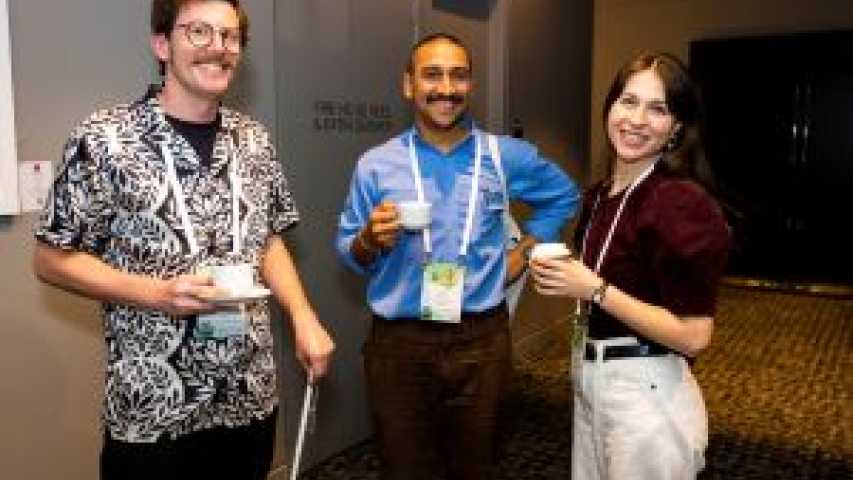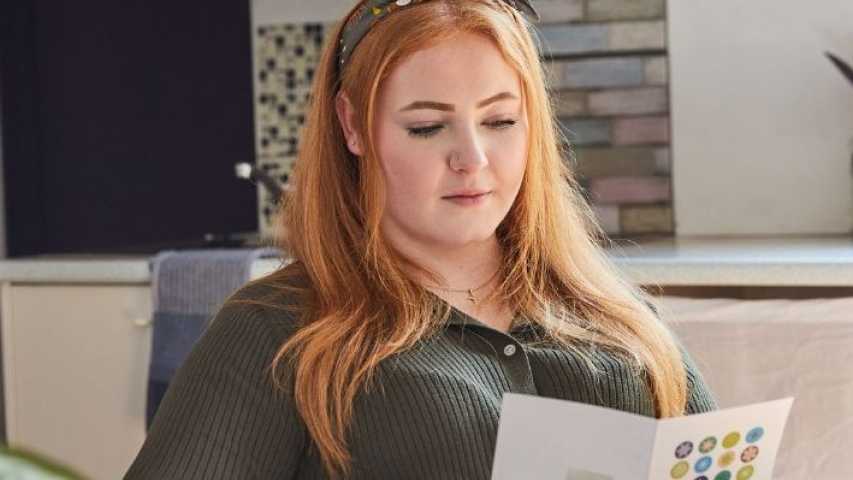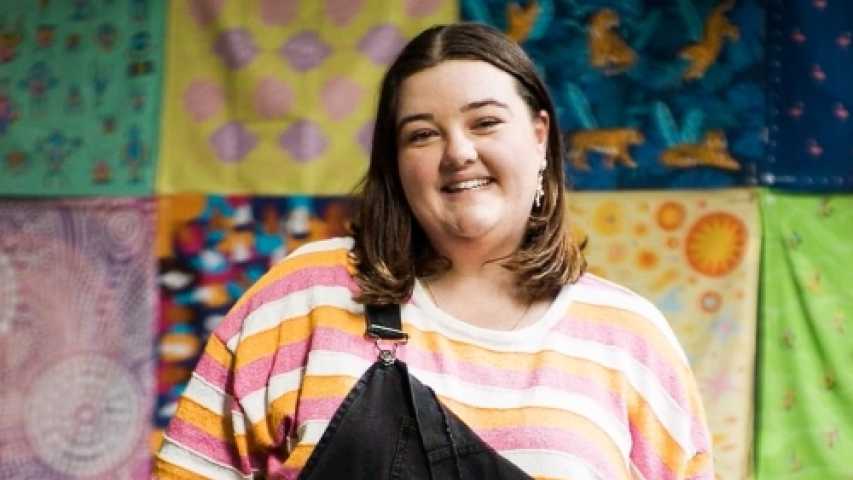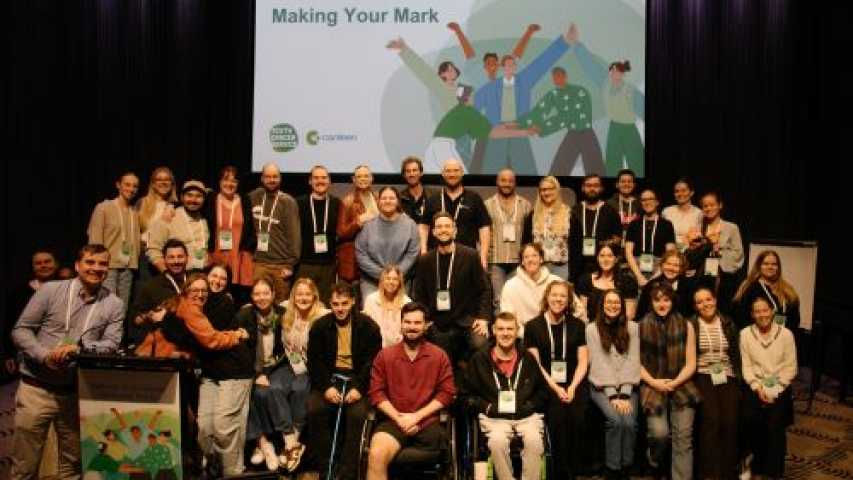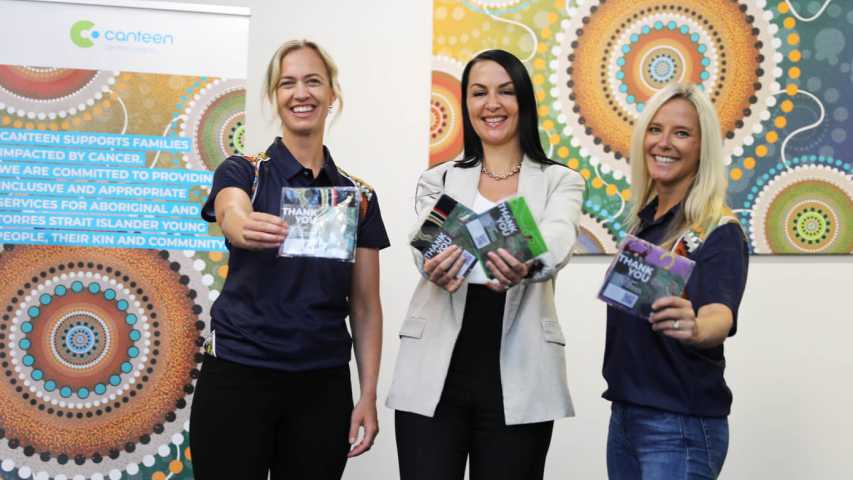By Olivia De Pomeroy, Senior Project Officer at Canteen
At Canteen, we have recently launched our inaugural Diversity and Inclusion Framework including our action plan for 2023-2026.
We believe that diversity in all its forms is a strength and constantly challenge ourselves to be better when it comes to inclusivity for both our workforce and for all young people and families impacted by cancer across Australia.
Our framework and action plan focuses on four priority population groups:
- Aboriginal and Torres Strait Islander peoples
- Lesbian, gay, bisexual, transgender, queer and intersex communities (LGBTQI+)
- Culturally and Linguistically Diverse people
- People living with a disability, including neurodiversity
This approach aligns with the priority population groups in the Australian Government’s 10-year Cancer Plan, which aims to provide equitable access of care, world class cancer outcomes and to improve the lives of all Australians affected by cancer. We will continue to identify and include other populations as we evolve our efforts.
Our strategy consists of four approaches:
1. Firstly, we will continue delivering the objectives set out in our second Reconciliation Action Plan in recognition of the cancer’s disproportionate impact on Aboriginal and Torres Strait Islander peoples. Canteen also recognises the intersectionality that exists among Indigenous young people and families impacted by cancer who also belong to LGBTQI+ communities, from culturally and linguistically diverse backgrounds and with varying abilities, and the compounding impact that this can have on an individual’s social and emotional wellbeing. Our D&I Framework strives to incorporate the voices and perspectives of Aboriginal and Torres Strait Islander young people and families impacted by cancer throughout.
2. Secondly, we will seek to implement and achieve accreditation for the Rainbow Tick Standards, which is the gold standard in LGBTQI+ inclusive practice. The LGBTQI+ acronym has been intentionally chosen by Canteen to focus our inclusivity efforts on lesbian, gay, bisexual, trans and gender diverse, queer and/or intersex people, as well as other sexuality, gender and bodily diverse people.
The Out with Cancer study, which Canteen was a partner researcher in, found that LGBTQI+ young people can experience a disproportionate cancer burden compared to the general population. Therefore, it is important to acknowledge and address their unique experiences and health needs to ensure that they receive high quality and culturally safe care throughout their cancer journey. Canteen will embed the findings and recommendations from the Out with Cancer study throughout our internal processes, and support offerings for young people and families living with cancer.
3. Our third approach will be to conduct research and consultation to identify best-practice guidelines to support culturally and linguistically diverse communities as well as young people with disabilities. Limited research exists into the needs of these two underrepresented groups in the community with both needing a tailored approach to cater for their distinct needs.
Language barriers, lower health literacy and difficulties navigating an unfamiliar system can result in poorer health outcomes. Language barriers also lead to an increased risk of miscommunication and medical errors, especially when navigating a complex illness like cancer. Children of migrants for whom English is not their first language face the unique responsibility of needing to act as a translator for parents, with studies finding this negatively impacts many young people leading to stress, anxiety and frustration.
People living with disabilities can be diagnosed with cancer, but cancer treatment can also cause permanent physical and neurological disabilities. Studies have found that people with disabilities are often excluded in decision making around their health care, especially those with intellectual disabilities. For individuals with cognitive impairment, intellectual disability, and neurodiversity, navigating the health care system can be challenging, making it essential to revise our approach to working with young people and families living with disabilities.
Canteen will embark on reviewing and adapting our service offerings to ensure that spaces, programs and events are accessible, allowing them to feel safe, welcomed, and able to participate.
4. Underpinning all of the above will be a fourth approach focused internally on reviewing and updating our processes, policies and procedures to become a safer and affirming workplace for all Canteen employees. We will be establishing a Diversity & Inclusion Advisory group so that the diversity of voices and lived-experience of our workforce will be heard and represented across our efforts in this space.
Ultimately, our framework will allow Canteen to embody our values through action to create an environment where all young people and families feel valued, respected and supported, and where everyone has an equal opportunity to succeed.
Click here to read the 2025 Diversity and Inclusion Framework.















